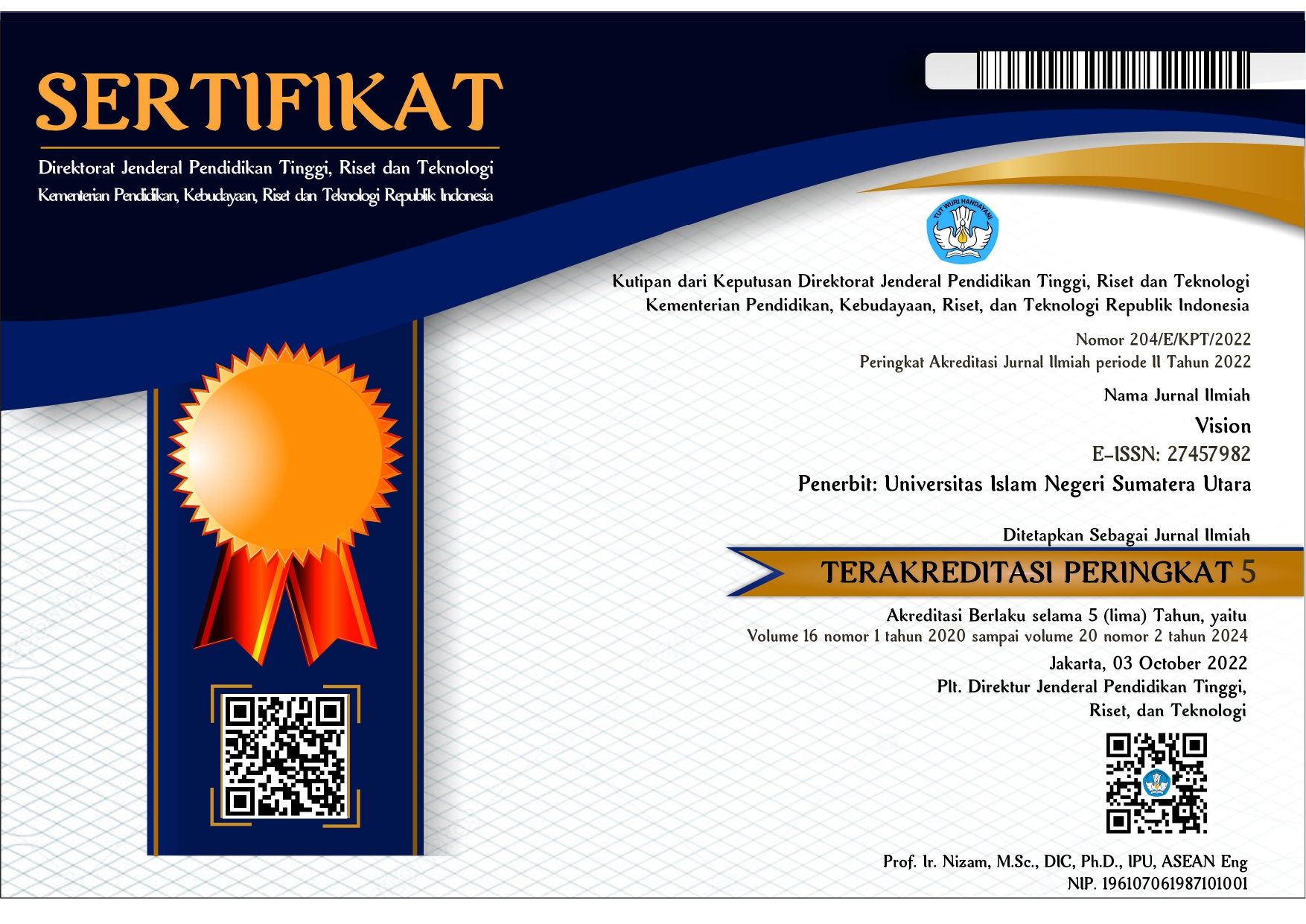AN ANALYSIS OF POSITIVE AND NEGATIVE FACE IN “THE CROODS MOVIE”
Abstract
Full Text:
PDFReferences
Afiyati, A. 2013. Politeness Principle as Seen in The Dialogue Between Characters on “KARATE KID” Movie. English Department of Education Faculty State Institute of Islamic Studies (STAIN)
SALATIGA Unpublished Thesis
Allen, R.C., & Gomery, D.1993. Film History: Theory and Practice. NewYork: Mc Graw Hill
Ambuyo, B.A. 2011. Face Threatening Acts and Standing Orders: ‘Politeness’ or ‘politics' in the Question Time Discussions of the Kenyan Parliament. International Journal of Humanities and
Social Science Vol. I No. 9
Amberg, J.S & Vause, D.J. 2010. American English History, Structure, and Usage. Cambridge: Cambridge University Press.
Başaran, B.C. 2013. Laughter as a Face Management Device In Turkish: Evidence From Turkish Spoken Corpus. Journal of Linguistics and Literature, Vol X. No.2. 10:2, P.75-100
Brown, P & Levinson, S.C. 1987. Politeness: Some Universals in Language Usage. Cambridge:Cambridge University Press.
Culpeper, J.2011. Politeness and Impoliteness. In: Karin Aijmer and Gisle Andersen (eds.) Sociopragmatics, Volume 5 of Handbooks of Pragmatics edited by Wolfram Bublitz, Andreas H.
Jucker and Klaus P. Schneider. Berlin: Mouton de Gruyter, 391-436
Creswell, J. W. 2002. Research design Qualitative, Quantitative, and Mixed methods Approaches 2nd
Edition. USA: Sage Publication, inc.
Goffman, E. 1967. Interaction Ritual: Essays on face-to-face behavior. New York, NY: Doubleday Anchor.
Haugh, M. & Michael, C,H. 2003. A Metalinguistic Approach to Deconstructing the Concepts of 'Face' and 'Politeness' in Chinese, English and Japanese. Journal of Pragmatics Vol XXXV. No. 10/11: P. 1581-1611
Haugh, M. 2007. The Discursive Challenge to Politeness Theory: an Interactional Alternative. Journal of Politeness Research, Vol III. P. 295–317.
Holmes, J. 2005. Politeness and Postmodernism - an Appropriate Approach to the Analysis of Language and Gender? Journal of Sociolinguistics. Vol IX. No.1 P. 108-117.
Holmet, J. 2013. An Introduction to Sociolinguistic 6th Edition. London and New York: Long Man.
Kedveš, A. 2013. Face Threatening Acts and Politeness Strategies in Summer School Application Calls. Vol XIV. No.2-3 P. 431-444
Keyton, J. (2011). Communication and organizational culture: A key to understanding work experience. Thousand Oaks, CA: Sage
Khorshidi, Hassan Rasouli. 2013. Politeness in Study Abroad. International Research Journal of Applied and Basic Sciences. Vol, V. No.3. P 324-333. S
Levinson, S.C. 1983. Pragmatics. Cambridge: Cambridge University Press.
Mey, L. Jacob. 1993. Pragmatics – An Introduction. Oxford: Blackwell
Suzila, T.I & Yusri, M. N. 2012. Politeness: Adolescents in Disagreements. International Journal of Social Science and Humanity, Vol. II, No. 2
Thomas, J. 1996. Meaning in interaction: an introduction to pragmatics. London and New York: Longman
Widdowson, H.G. 1978. Teaching Language Communication. Oxford: Oxford University Press.
Vilkki, L.2006. Politeness, Face and Facework: Current Issues. SKY Journal of Linguistic. Vol XIX.P.322-332
Yule, G. 1996. Pragmatics. London: Oxford University Press
DOI: http://dx.doi.org/10.30829/vis.v15i2.620
Refbacks
- There are currently no refbacks.
Copyright (c) 2020 VISION
















